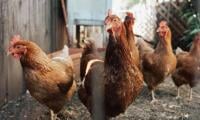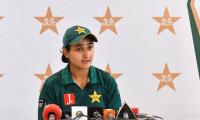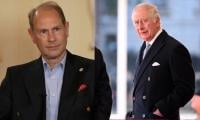Moscow: Moscow will shut non-essential services between October 28 and November 7, its mayor said on Thursday, as coronavirus deaths soar in Russia, the country in Europe hardest hit by the pandemic, amid dramatically low vaccination rates.
Mayor Sergei Sobyanin announced the 11-day closure a day after President Vladimir Putin ordered a nationwide paid week off at the end of the month to curb fast spreading infections.
Russia reported a record 1,036 Covid-19 deaths in a single day Thursday, but officials have warned the worst is yet to come, with only 35 percent of Russians fully vaccinated. Sobyanin said all non-essential retail, sporting and entertainment venues must close for the period. Shops selling food, medicine and other essentials will remain open.
Restaurants and cafes will be able to sell take-away food, the mayor said in a statement. Mass events will be banned and schools will be closed, with the days off coinciding with national school holidays.
Theatres and museums can stay open, but entry will be allowed only with QR codes. The mayor said the measures were necessary because the "situation in Moscow is continuing to develop according to the worst-case scenario."
When restrictions end on November 8, Moscow will also halt free public transport passes for unvaccinated passengers over 60 or with chronic disease. "Please take this decision with understanding. It was adopted with the aim of protecting the lives and health of the most vulnerable Muscovites," Sobyanin said.
He had previously told unvaccinated over-60s in the Russian capital to work from home and extended mandatory vaccinations for service workers. Officials this week said the virus is spreading faster than ever, with Russia registering 36,339 new cases on Thursday. Putin on Wednesday linked Russia’s high death rates to what he called an "unfortunately" low vaccination rate.
"Please, show responsibility," Putin urged Russians. Despite multiple pleas from Putin and the homegrown Sputnik V vaccine being widely available since December, many Russians are reluctant to vaccinate themselves.
Putin’s own spokesman Dmitry Peksov said Wednesday that he had not been inoculated, even if he repeatedly urged Russians to do so. Although it is being used in dozens of countries, Sputnik V is not approved by the EU or by the World Health Organisation. An aide to Russia’s health minister, Alexei Kuznetsov, told local media on Thursday that the date for an inspection by the EU’s drug regulator, the European Medicines Agency, is "still being discussed."
"We are preparing a visit (by the EMA) this year," he was quoted as saying by state news agency TASS. Western vaccines are not available in Russia and the Kremlin this week insisted that bringing them into the country would not help the sluggish vaccination rates. The fatalities on Thursday brought the country’s official death toll from the disease to 227,389.
But figures published by statistics agency Rosstat in October paint a far darker picture, suggesting that more than 400,000 people have died in the country from the coronavirus.Meanwhile, the World Health Organisation said on Thursday that 80,000 to 180,000 health care workers may have been killed by Covid-19 up to May this year, insisting they must be prioritised for vaccination.
A WHO paper estimated that out of the world’s 135 million health staff, "between 80,000 to 180,000 health and care workers could have died from Covid-19 in the period between January 2020 to May 2021".
WHO chief Tedros Adhanom Ghebreyesus said health care workers needed to be immunised against the disease first, as he slammed the global inequity in the vaccine roll-out. "Data from 119 countries suggest that on average, two in five health and care workers globally are fully vaccinated. But of course, that average masks huge differences across regions and economic groupings."
"In Africa, less than in one in 10 health workers have been fully vaccinated. Meanwhile, in most high-income countries, more than 80 percent of health workers are fully vaccinated." He added: "We call on all countries to ensure that all health and care workers in every country are prioritised for Covid-19 vaccines, alongside other at-risk groups."
Tedros said that more than 10 months on since the first vaccines were approved by the WHO, the fact that millions of health workers still had not been vaccinated was an "indictment" on the countries and companies controlling the global supply of doses.
Annette Kennedy, president of the International Council of Nurses, said the organisation grieved for all health care workers who had lost their lives -- "many needlessly; many we could have saved".
"It’s a shocking indictment of governments. It’s a shocking indictment of their lack of duty of care to protect health care workers who have paid the ultimate sacrifice with their lives," she said.
The WHO wants each country to have vaccinated 40 percent of its population by the end of the year, but Tedros said 82 countries were now at risk of missing that target, chiefly through insufficient supply.
The novel coronavirus has killed at least 4.9 million people since the outbreak emerged in China in December 2019, according to a tally from official sources compiled by AFP, while nearly 242 million cases have been registered.
In a related development, a booster shot of the anti-Covid-19 vaccine developed by Pfizer/BioNTech is 95.6 percent effective against symptomatic infection, according to trial data published by the makers on Thursday.
Meantime, daily virus cases in the UK on Thursday soared to over 50,000 a day for the first time since July but the government again resisted calls to reimpose restrictions. According to the latest statistics, there were 52,009 new cases recorded in the UK -- the highest figure since July 17. The UK has managed to administer two vaccine doses to 79 percent of those aged 12 and over and the number of hospitalisations remains relatively low. Health Secretary Sajid Javid on Wednesday played down concerns over the stubbornly high figures and insisted it was not time to bring back measures such as compulsory mask-wearing indoors. "Cases are rising. They could go yet as high as 100,000 a day. This pandemic is not over," Javid told a news conference.
Earlier in the day, India administered its one billionth Covid-19 vaccine dose on Thursday as it fights its way back from a devastating surge in cases that brought the health system close to collapse.
Prime Minister Narendra Modi hailed the feat as a "triumph of Indian science", but authorities remain on guard for a new pandemic wave. About three-quarters of adults in the country of 1.3 billion people have had one shot and 30 percent are fully vaccinated, according to government figures.
Liberal Justice Elena Kagan on Sept. 13, 2016. — Slate website WASHINGTON: U.S. Supreme Court justices, wading back...
A representational image of inmates behind jail bars. — Unsplash/FileMOSCOW: A Russian court on Wednesday ordered...
Sudanese soldiers guard the surrounding area of the UNMIS compound in El-Fasher, the administrative capital of North...
US quietly shipped ATACMS missiles to Ukraine. — Report news agencyWASHINGTON: The United States in recent weeks...
US President Joe Biden during his address in California. — AFP FileWASHINGTON: President Joe Biden signed a...
The World Meteorological Organisation flag. — AFP FileGENEVA: Global temperatures hit record highs last year, and...







